Girls Lead and Speak Up Against Child Marriage in Nepal
“You need to save the future of your daughters by educating them,” Najama Khatun said at a community meeting. “I urge mothers not to subject their children to the same fate they have experienced. Please do not marry them off early.” Najama’s words were powerful and were reflected in the eyes of the girls present at the meeting. Najama, aged 12, dressed neatly, sat amongst the community leaders and spoke about the power of education. Addressing the crowd, Najama emphasized, “Educate girls and make them self-reliant.”
Marriage under the age of 20 is illegal in Nepal.
Breakthrough ACTION Nepal’s Reducing Child Early and Forced Marriage (R-CEFM) project provides technical support to local municipal governments to strengthen their capacity to reduce child marriage. As part of the work, they helped reestablish local child rights committees, which collaborate with child clubs.
Najama got involved in the issue of child marriage when a representative from the local ward office came to her school to talk about it with her classmates and mothers of her classmates, including her own. She now chairs a child club and represents it on the Ward Child Rights Committee (WCRC) in Loharpatti, Mahottari district.
During the Loharpatti club’s regular monthly meetings, Najama and her fellow members remain vigilant about and raise awareness of CEFM-related issues. If they sense suspicious activities like girls suddenly dropping out of school or when parents are seen making preparations for the marriage of their daughters under 20 years, they informally discuss them and decide on the necessary action, which may involve informing the ward office or WCRC members.
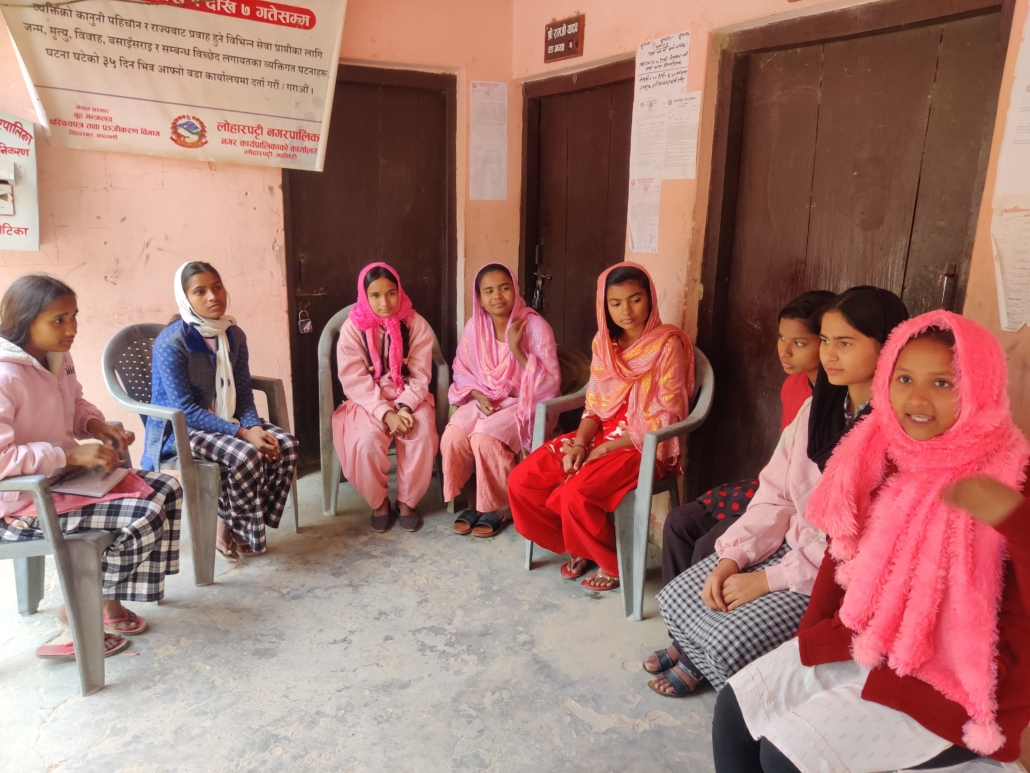
Members of the Loharpatti Child Club gathers to discuss reducing child, early, and forced marriage in Nepal. Photo by: Rajesh Ghimire
Najama, her child club team, and the ward office face several challenges. Their primary task is persuading parents to avoid marrying off their children at a young age. Najama explains, “They understand the risk of child marriage, but they say that if they don’t marry off their daughters early, they might run away with someone. But if they marry them off early, it […] ruins their daughter’s future.” While parents have begun to show understanding of CEFM’s negative impact, Najama believes more must be done. “Understanding is not enough. We must intensify our campaign to change their behavior,” says Najama. “We need to keep reminding them consistently.”
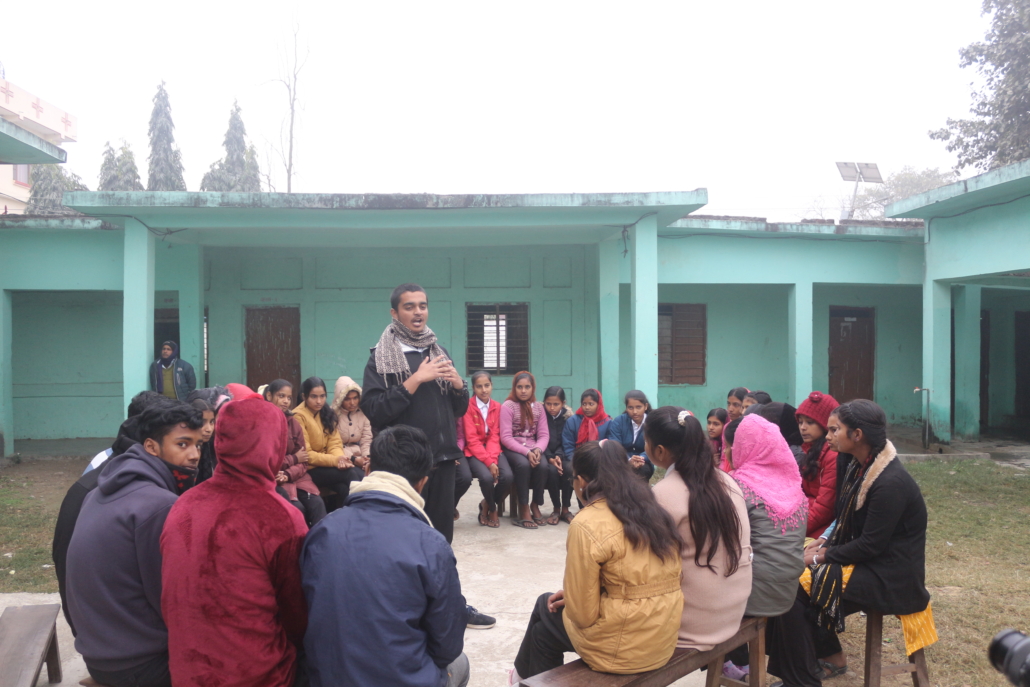
Kaushal Kishor Jha, the chair of the child club in Durga Bhagwati Rural Municipality, Rautahat District, leads a meeting. Photo by: Rajesh Ghimire
Najama is only one among many Nepali children working with their senior community leadership to save themselves and their peers from being married early. Aastha Kumari Misra, from Matsari, Durga Bhagwati, Rautahat District, says, “The main problem with parents is related to their ‘honor.’” Punam Pari Mahato, another member of a child club, elaborates: “Parents fear that their daughter might elope. Then they would lose all prestige, honor, and whatever name they have in society. Girls in our village are really left behind without education and forced into early marriages. [But], if we are educated enough, we can pursue careers and take care of our parents like boys.” Club member, Priya Kumari Pandey, says, “They even say, ‘What will you achieve with education? After all these efforts, you will end up doing nothing but cooking and taking care of the family in the future.’ This attitude needs to change.”
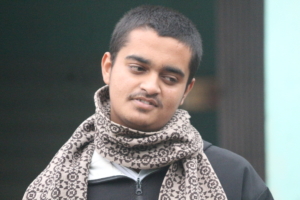
Kaushal Kishor Jha, the chair of the child club in Durga Bhagwati Rural Municipality, Rautahat District, Madhesh Province, Nepal. Photo by: Rajesh Ghimire
Having local government provide leadership on reducing CEFM has improved their relationship with the child clubs and community members. Kaushal Kishor Jha, the chair of the child club in Durga Bhagwati Rural Municipality, Rautahat District, says, “When the ward office approached and mobilized us through the child club for the cause of ending child marriage, I became very positive about working with them.” According to Kaushal, through various initiatives, from dramas to awareness-raising campaigns, they have made significant efforts to stop child marriage. “Child marriage used to happen openly before these initiatives. Now, no one dares to do so,” says Kaushal However, he emphasizes, “We need to do more to completely stop it.”
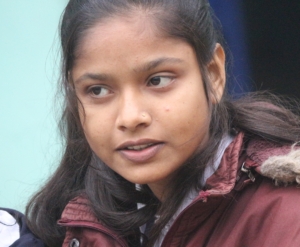
Anamika-Misra, a member of a child club in Durga Bhagwati, Madhesh Province, Nepal. Photo by: Rajesh Ghimire
Anamika Misra of Durga Bhagwati adds, “When we talked about the health and psychological impact of child marriage, adults in society used to dismiss us, saying these are their issues, and we children don’t need to discuss them. Despite this, we continued our campaign to raise awareness.”
“Our efforts are already making a difference,” says Najama. According to her, the number of girls attending school is increasing, which is a positive sign. “I’ve also personally benefited. Before joining this movement, there was discrimination in my family, favoring my brother over me. Now, we’re treated equally. Also, my parents used to say they’d marry me off after I finished 10th grade, but now they encourage me to pursue my education and follow my dreams. I believe this should happen in every family.”
Written by: Rajesh Ghimire, Communications Specialist, Breakthrough ACTION

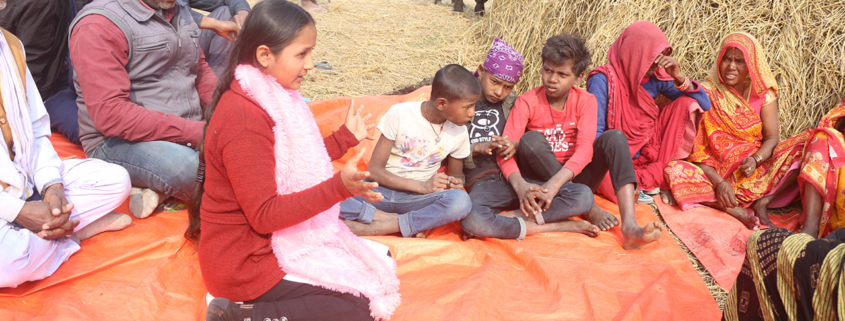 Rajesh Ghimire
Rajesh Ghimire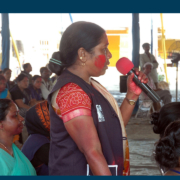 Gopal Bhattacharjee/Photoshare
Gopal Bhattacharjee/Photoshare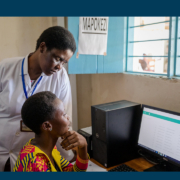 Rachel Chilton/USAID/Flickr
Rachel Chilton/USAID/Flickr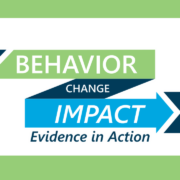
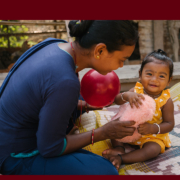 Dave Cooper/USAID
Dave Cooper/USAID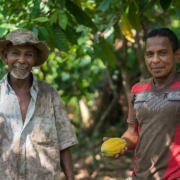 USAID/Flickr
USAID/Flickr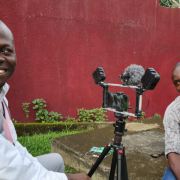 John Hopkins Center for Communication Programs
John Hopkins Center for Communication Programs